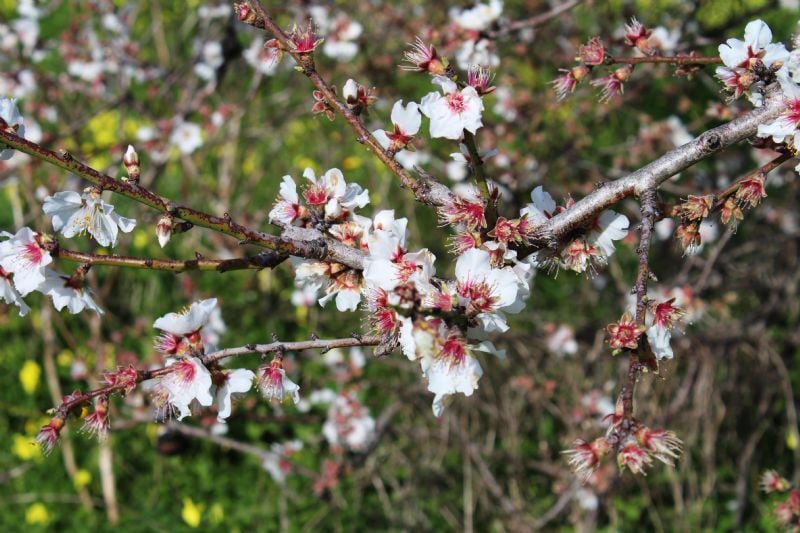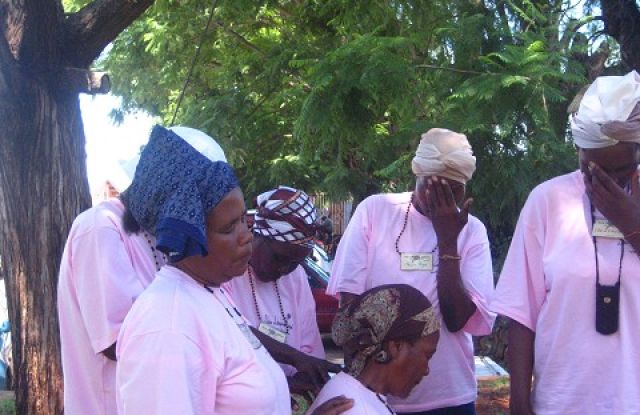How Will You Know if Your Season of Winter is Officially Over?


I got up early this morning. It was cold. Our cat – an outside cat – knows that too well. He has been toughing it out in frozen places outdoors this winter.
I looked at the weather forecast and saw that it is going to climb up into the 60s today and never go back below freezing for the next 10 days. I figure it’s the end of winter.
We all go through seasons of winter and then those seasons end. Winter is a time when all the evidence points towards death. In winter, the parts of life that were beautiful and growing fell to the ground. Cold air blew away everything green and vibrant.
Experiencing winter
What is difficult is discerning when our season of winter is over. During winter, you can feel like the sun will never warm the earth again. You lose hope. You reconcile yourself to survival living.
In our seasons of winter, relationships and dreams that shimmered with life appear to be dying. At Adventures, we’ve experienced a season of winter. We had grown complacent as year after year we grew and enjoyed the fruits of growth.
But then, imperceptibly, things began to change. Our call hadn’t changed and our hearts to serve were the same. But as a group, we stopped really listening to those we serve. We stopped being deeply responsive to their needs. Frankly, the buck stops with me – I wasn’t leading as well as I have in the past.
We needed to be pruned. We needed to rediscover why God dreamed us up and called us together in the first place. It was the work of winter. Subterranean work. When branches get lopped off, roots dig deeper and life pushes upward and outward.
This is what is happening now. We have been finding ways to more deeply connect with those we serve. They are looking for connection and dialogue.
Winter is lonely
Some time ago, one of our participants was sent home because we were worried about him. In our view, he was in a bad place. After coming to that conclusion, the process of communicating this occurred quickly – too quickly.
As often happens when someone has to leave community and enter a lonely space, that time became a season of winter. It felt like rejection. His spirit was jolted. It was hard. A dialogue and a clearer understanding of the process would have served him better. He wanted to know why the process was so quick.
Our answer: “Because we were worried about you.”
“Was that worry born of fear or care?” He asked. “Because if it was care, you would have walked me through the process more gently and you would have cared for me more once I was back home.”
It’s a righteous question and conclusion. We don’t want to send people into a season of winter if we can avoid it. Still, change is hard. Since then, we have sent other people into seasons of winter, even while working hard not to.
And the pain they feel is real. When you’re in a winter season, you can be cold to the touch. People avoid you. Maybe you remind them of the pain of their own winter seasons. Maybe the silence you feel from God scares them. They feel awkward. Your place of rejection taps into the rejection they too easily fall into.
In summer, we experience purpose. It is a productive time of forward motion. In winter, it can feel as though you are going backward. You can feel as though you have lost your purpose. Winter is a time of retreating to conserve warmth while the work of dying is going on.
Discerning winter’s end
But winter has to end. At some point, Narnia thaws and Aslan appears. The temperature outside begins to climb and if you listen, you can hear a bird’s song announcing change.
Locked up inside, we can miss some of the signals that may give us hope.
That’s when we need friends who can point out change before it arrives. That’s when we need to hang onto whatever shred of hope that alights on our window sill.
Jeremiah was a man who lived in the worst of winters. His nation was destroyed – his friends and family devastated. “I am the man who has seen affliction by the rod of the Lord’s wrath,” he said of himself. (Lam. 3:1)
But God had not forgotten him. One day he wanted to speak with Jeremiah about the coming change of seasons.
The word of the Lord came to me: “What do you see, Jeremiah?”
“I see the branch of an almond tree,” I replied.
The Lord said to me, “You have seen correctly, for I am watching to see that my word is fulfilled.” (Jer. 1:11-12)
The almond tree is the first to bloom and the last to bear fruit. There are almond trees blossoming all over Israel now. Their blooms are a tangible sign of a change of seasons – warmth returning.
Consider the possibility that there’s an almond tree blooming outside your window right now.
Have you been in a season of winter? Has it felt as though spring would never come? We all go through seasons like that. But then comes the day of new blooms that signal an end to your pain.
Look beyond the shuttered window of your soul. Maybe there’s an almond branch blooming or a robin on the lawn. Maybe God is sending you a sign that your season of pruning and pain is coming to an end.
I believe I’m hearing a few songbirds outside. I pray that you hear them as well.



Thank you Seth for the heartfelt reflections here. As someone who has experienced what has seemed like a weather cataclysm for my entire life it’s been good to remember the truths of a favorite verse found tucked away in Hebrews 11:13. The “Butch” translation goes something like this: “These people died in the faith NOT having received what was promised. But they confessed from afar they were strangers and aliens on this earth. They longed for their real home where passports have been stamped as “forever citizens.” Catholic theology accommodates the notion of “perpetual martyrdom” not just due to the effects of a reckless life but more because that is a holy path a person is on. We pray for breakthroughs. We long for resolution. There isn’t an understanding how the “Body of Christ” is often so damaging to other members. It isn’t right, righteous, healing nor sane yet still we survey the cold carnage in another dank day believing in faith life needs more than any of us “falling on swords” for matters often outside our control. There is a special grace that emerges when we confess the calm of Christ’s compassionate life in the face of blustery storms and savage swirling eddies. Much love to you Seth. Now and always.
It’s a puzzle how some people seem to be given a double portion of “blessing” while others receive so much pain it has to be overwhelming. And certainly, that holds true for you, Butch.
You always sought to pack as much life as possible into the time allotted you, and with it came great trials (and it must be said, blessings as well).
No one can fathom the private pain we carry with us. Certainly not those who themselves are overwhelmed by pain and its consequences.
We need more hugs. More tender words. More tears.
Decades ago, I went to a Bible school led by a man in his mid-60’s who I will call Tom. He was one of the wisest most humble servants of God I’ve had the privilege of meeting. The school was set up so our professors were primarily visiting speakers who would come by and speak for approximately 3 days on the topic they ‘specialized’ in. If I mentioned names, you would recognize them. So if the topic was prayer, we had the guy who had catalyzed prayer movements around the world. If the topic was servant evangelism, we had the guy who in our time was associated with birthing it for this generation.
But what was most memorable for me amongst all the incredible teaching we were exposed to was this: Tom would sit in on our 4 hours of lectures/practicum a day. This man had heard all of this stuff before, and was well-versed and practiced in it, but he humbled himself and he sat in those classes as a student and would ask questions if he had them. I learned from him a posture of hunger and humility before the Lord, and his peers, and his students.
Why do I share all this? Because your thoughts triggered them as they speak of someone (and an organization) who is willing to keep on learning, and humble enough to admit when they stumble. This helps the rest of us on our journey, one that must be marked by vulnerability, reassessment, humility, making amends and moving forward.
Thank you for putting this out there Seth.
What a privilege to sit in the presence of men like Tom! What courage we take from seeing strong men and women humble themselves and model the possibility of victory even in a place of weakness.
I’ve loved watching you press into the hard places over the years, Melinda. You’ve taken your strength and poured it out, taking on the weakness of widows and orphans in their distress. It’s a great way to live.
The end of winter is similar to the end of pregnancy. You never know, until you know. It is the anticipation that keeps the heart hoping “Maybe today!” Yet, the fear of transition and all the pain it brings is quite real as well. Hope and fear intermingle amid the uncertainty of the birth. Waiting is hard. Timing is everything. And there is nothing you can do about either. It’s a hard place, but a place that ends in joyous, miraculous life. Winter is hard…but it leads to spring.
I wrote this blog the winter of my cancer. https://michellesmosaic.wordpress.com/2007/02/06/winter/
Wow – Michelle. Our blog posts are so similar! You have weathered your season well. I know God is pleased with you.
Blog post written by God to me.
Seth,
Thanks for being vulnerable and being a humble leader. What great insight. I’m sharing this with several friends of mine. We all have winter seasons and can benefit from His pruning. I’ve been in a winter season. Yet, I see the almond branch blooming and robins in the yard. Looking forward to His season of fruitfulness in my life and those around me.
Thanks for sharing this.
You’re welcome, Becky. Glad to hear that things are looking up!
I like the south. Why prolong the pain?
Glad you’re getting there, Katie. May your spring come soon.
I feel like that’s the season I’m in right now: Minnesota March (both literally and figuratively). Some days GORGEOUS! The taste of spring is in the air, my heart is free and light, and winter seems like a distant memory. Then there are days when the frigid air nips at my nose and I’m buried under inches of snow wondering if spring is even a thing. I never know which it is going to be. Spring is coming. I can taste it. There’s a bug living in my room I haven’t killed because he’s evidence that things are starting to break. He wouldn’t survive outside yet, but he’s safe in here. That’s how I feel–safe in certain spaces because of those who aren’t scared by my shivering soul, who wrap a blanket across my shoulders, and who made me hot chocolate to warm up. There are still some tough frosts (and maybe more blizzards) separating me from true spring, but I’m getting there, one day at a time.